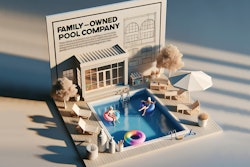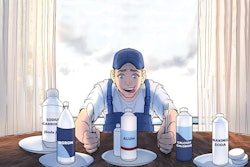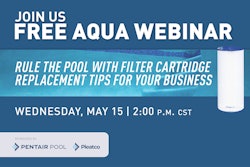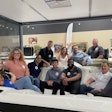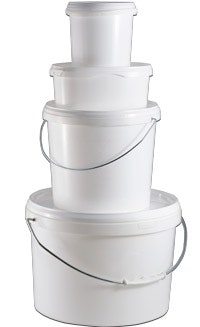
In the last year or two, however, that dependable revenue stream has come under increasing pressure, and it's not entirely due to the current slump. Sure, new construction and major purchases are down, but maintenance sectors - those that include products and services that people need to preserve their existing lifestyles - have not seen dramatic drops.
People are still buying pool chemicals to maintain their pools, but due to the current focus on thrift, they're more susceptible than ever to the cost-savings promises of online retailers and discount merchants such as Wal-Mart and Sam's Club.
Randy Colyer, owner, Greenwood Pools, Altoona, Pa., has seen it. "I've noticed a rise in people going online for discount products," he says. It's an ongoing problem, he adds, due to the online retailers' advantages of low overhead and, in many cases, sales-tax-free transactions.
Coinciding with this same period of financial anxiety, the salt chlorine generator has rapidly moved into the mainstream of pool sanitization. Between six and seven of every 10 new pools built in the last few years use saltwater chlorination, says Bob Harper, general manager of Pristiva, a division of Compass Minerals, Overland Park, Kan. His research puts the current total at approximately 1.3 million saltwater pools.
The salt chlorine generator is in effect a small machine that can turn a bag of salt into chlorine - the same chlorine that previously was purchased from the retailer. With people making their own chlorine at home, sales of that sanitizer have suffered, as the markup on a bag of salt in no way compensates for the sales of the large amount of chlorine it replaces.
"That means that on the retail and service side, those pools have gone from profitable chemicals to commodity salt," Harper says. "A bag of salt retails for 8 to 16 dollars a bag. Even if a retailer is doubling his money, that's only $8 profit a bag at best, which is not as good as he was doing before with chlorine and shock. The markup isn't as good with commodity products, and selling them opens the retailer up to competition from volume retailers."
Simply put, due to chlorine generators the industry has seen a loss of value in chlorine sanitizers such as pucks, sticks and shock products. "Our chlorine sales will be down quite a bit this year because of all the salt chlorine systems that are being installed," Colyer says.
In general, dealing with these challenges means two things - blunting their effect and making up the difference elsewhere.
Salt Solutions
Yes, the salt chlorine revolution has cut into sanitizer sales, but what new opportunities have swept in with it?
First of all, the salt chlorine system itself has a nice markup. Premium units can sell for over $2,000, offering a profit far in excess of what might be expected of several years of chlorine sales. (A study by P.K. Data has pegged the total annual chemical purchase of the average pool owner at $289, and that includes everything from quats to flocs.)
Generator sales are one place Deborah Wickens, Aqua-Liberty Pool, Spa & Hearth, looks to offset the loss. Her dealership in Rockville, Ind., sells and installs generators, but she feels they do more than contribute direct revenue.
"I think they tie the customer to us," she says, "because customers trust us to take care of them - I mean, how many people read their manuals these days? They'll just take their phone out to their salt chlorine generator and call us, and say, 'What's this number mean? Is that temperature reading in Celsius or Fahrenheit?'
"We see lots of little problems like that. So we make a pretty good profit in putting the unit on, and then they rely on us to come back and check things."
These same customers need pool salt. A lot of it, initially. Maybe 15 bags for an average-size pool, just to get things going. And while, ultimately, the customer will not spend as much on salt as chlorine, it remains a dependable source of income that a retailer has to maximize.
"There's a huge market in replacement salt," says Merry Wise, co-owner, Wise Pools, Conroe, Texas. "We sell about 100 bags a week - or more than that, depending on the season."
Wise marks salt bags up by 40 percent, the same profit margin she maintains throughout the store. In a sense, salt chlorine generators help Wise Pools sell ozone systems, too, because the synergies between the two sanitizing systems make a package deal more attractive. The company presents the two together as an ideal team to sanitize pools with less maintenance and overall chemical usage.
The New World
Perhaps the most lucrative of the new profit centers that have accompanied the salt chlorine revolution is chemical treatment specially designed for salt pools. Salt chlorine generators have created entirely new pool needs due to their tendency to scale, the aggressive nature of salt itself, and the harsh environment that exists inside the generator which can be destructive of traditional chemicals (see "Breakdown," June AQUA).
New, salt-specific products include more-robust versions of traditional chemicals designed to withstand the stressful passage through the chlorine generator. Pristiva, for instance, infuses its premium salt with a sequestering agent designed to endure the generator's localized hyper-chlorinated environment.
Colyer's Greenwood Pools sells SmartPool's AquaPill #9 Salt Cell Guard, which fights scale buildup, and other salt-specific products from Natural Chemistry and SeaKlear. And at Wickens' AQUA-Liberty store, being a BioGuard dealer, customers are put on a schedule of treatments using Renewal, part of BioGuard's Mineral Springs Program. It's designed to address the particular equipment needs of a salt chlorine system, and as Wickens points out, it's a product that the customer can't get from a discount retailer.
Beat 'Em On Price
Selling exclusive chemicals is only part of a strategy Wise Pools uses to keep the discount stores and Internet sellers at bay - one that might aptly be called, "Beat 'em on price, make it back on specialty chemicals."
"The trick in a retail store," Wise says, "if you are competing against a discount store that is supposedly cheaper than you are, is to take the products that people compare price on, and keep your price the same or just under their price."
"I've even put little signs on those products that say, 'Cheaper than Sam's Club!' That's not unethical! It's just good business. And I make sure it really is cheaper.
"That way, your customers lose the perception that you are the expensive store and that you'll always be higher. But at the same time, you want an overall 40 percent margin on your products. So what you do, is all this algaecide and specialty chemicals and products you really can't get at the discount stores, you jack that up enough to make up for your loss leaders.
"Because they're not going to trust Sam's Club for that. Chances are they don't even have it there, and if they do there's definitely no one there who knows how to use it.
"And they don't shop that stuff for price," she adds. "When they come in and their pool's all nasty and green, and they're having the whole Cub Scout troop over on Saturday night, they don't care what they pay for something to take care of it."
Taken as a whole, this approach leaves the retailer a good overall margin while avoiding the disastrous perception that buying at the dealership is the sort of costly extravagance that must be sacrificed in hard times. That's critical, Wise says. "You have to get them out of the idea that your store is going to be much higher priced than the discount place."
Internet Weakness
Internet wholesalers pose a slightly different set of challenges. Not only are their prices lower due to their lower overhead costs, but the effort required of the buyer is much lower, as well.
Those are the Internet retailer's strengths. Smart retailers compete by focusing on their weaknesses. These mostly fit under the headings of communication, delivery and product knowledge.
Wise plays on the fact that customers are often uncertain about how to use pool products; she asserts that the dealership's expertise is not available to assist with products purchased elsewhere.
In terms of overhead, she says, a bricks-and-mortar store is a weakness, but in terms of customer support, it's an advantage. "Make sure they know that if something goes wrong with their Internet purchase, then they're going to be dealing with a stranger out in the great unknown.
"And when it comes to equipment, you have to tell your customers that you won't install it and you won't repair it if it breaks. You tell them, 'We can't take care of what we don't sell, so if it breaks, you're SOL (you say it in a nicer way)."
The retailer's crucial advantage of expertise needs to be continually placed before the customer. All certifications, diplomas, awards and testimonials to the value of the store's knowledge should be prominently placed.
Colyer makes a point of it. "We emphasize with our customers that all of our people are trained - they go to school and take classes on how to take care of pools. We've got the experience, we've been here for 49 years."
The circumstances that have encouraged customers to try to manage pool care by themselves have put a premium on product knowledge and water chemistry understanding. A retailer that is well stocked in these areas - and makes sure customers know it - is well positioned in the current market.






















